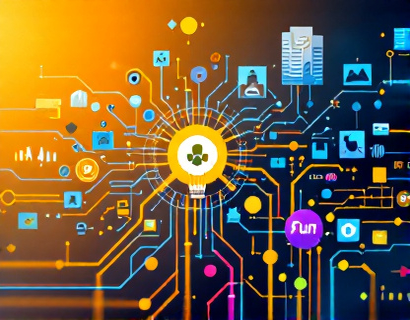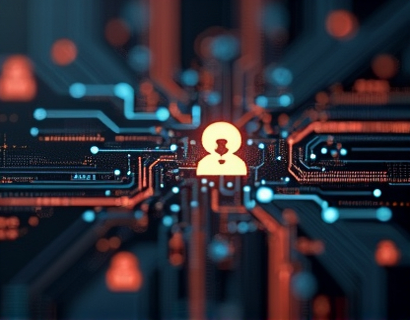Transforming Education with AI-Powered Chatbots: A Comprehensive Guide for Students, Families, and Educators
The integration of artificial intelligence in educational settings has opened new avenues for learning, making knowledge more accessible and personalized than ever before. Among the various tools emerging in this space, AI-powered educational chatbots stand out for their ability to provide specialized insights tailored to the needs of students, families, and educators. This article delves into the capabilities and benefits of these innovative chat platforms, focusing on how they deliver industry knowledge and services through verified content, while also offering a child-friendly version to ensure a safe and educational experience for all users.
Understanding AI-Powered Educational Chatbots
AI-powered educational chatbots are sophisticated tools designed to interact with users through natural language processing. These chatbots leverage machine learning algorithms to understand and respond to user queries with relevant and accurate information. Unlike traditional Q&A systems, these chatbots can engage in multi-turn conversations, adapting to the context and providing follow-up information as needed. This interactive approach not only enhances user engagement but also facilitates a deeper understanding of complex topics.
Specialized Insights for Students
For students, AI chatbots serve as personalized tutors, offering support in various subjects and areas of interest. These chatbots can provide detailed explanations, solve problems, and even guide students through complex projects. One of the key advantages is the ability to receive instant feedback and guidance, which is crucial for timely learning and improvement. Moreover, chatbots can adapt to the individual learning pace of each student, offering additional resources or simplifying concepts as needed. This personalized approach helps in building confidence and fostering a love for learning.
Resources for Families
Families play a vital role in a child's educational journey, and AI chatbots can be invaluable allies. These tools can offer parents insights into their child's progress, suggest educational activities, and provide tips for supporting learning at home. By accessing verified information, parents can better understand their child's educational needs and how to effectively assist them. Additionally, chatbots can facilitate communication between parents and educators, ensuring that everyone is on the same page regarding the child's educational goals and challenges.
Enhancing Educator Efficiency
Educators are constantly seeking ways to enhance their teaching methods and manage their workload more efficiently. AI chatbots can assist in several ways. They can answer common questions from students, freeing up time for teachers to focus on more complex tasks. Chatbots can also provide educators with resources and best practices for integrating technology into the classroom. Furthermore, these tools can help in tracking student progress and identifying areas where additional support may be needed, enabling teachers to tailor their instruction more effectively.
Verified Content for Trust and Accuracy
One of the most significant advantages of AI-powered educational chatbots is their commitment to content verification. In an era where misinformation can spread rapidly, ensuring that the information provided is accurate and reliable is paramount. These chatbots are designed to source information from reputable and peer-reviewed sources, providing users with trustworthy content. This feature is particularly important for educators and parents who rely on these tools to guide their learning and decision-making processes.
Child-Friendly Versions for Safe Use
Recognizing the importance of safety in educational technology, many AI chat platforms offer child-friendly versions. These versions are specifically designed to be safe and appropriate for young users. They include features such as age-appropriate language, strict content filters, and monitoring to prevent exposure to inappropriate content. This ensures that children can benefit from the educational insights provided by chatbots without any risk to their well-being.
Engaging and Interactive Learning Experiences
The interactive nature of AI chatbots makes them an excellent tool for engaging students in the learning process. Through conversational interactions, chatbots can present information in a more dynamic and engaging way, which can help in retaining student attention and interest. For example, a chatbot can turn a history lesson into an interactive quiz or a science lesson into a virtual experiment. This approach not only makes learning more enjoyable but also helps in reinforcing concepts through active participation.
Supporting Diverse Learning Needs
Every student has unique learning needs, and AI chatbots are well-equipped to support this diversity. These tools can adapt to different learning styles, providing visual, auditory, and kinesthetic content as needed. For students with special educational needs, chatbots can offer customized learning paths and support mechanisms. This inclusivity ensures that all students, regardless of their abilities, can access and benefit from high-quality educational content.
Fostering Critical Thinking and Problem-Solving Skills
Beyond providing information, AI chatbots can play a crucial role in developing critical thinking and problem-solving skills. By presenting users with challenging questions and scenarios, chatbots encourage students to think deeply and creatively. This interactive approach helps in building analytical skills and the ability to approach problems from multiple angles. Educators can also use chatbots to design activities that promote collaborative learning and peer discussion, further enhancing these skills.
Integration with Educational Systems
The seamless integration of AI chatbots with existing educational systems is another key benefit. These tools can be easily incorporated into learning management systems (LMS), school portals, and other educational platforms. This integration ensures a smooth user experience and allows for the consolidation of various educational resources in one accessible location. For educational institutions, this means reduced administrative burdens and a more streamlined educational environment.
Continuous Improvement and Updates
AI technology is rapidly evolving, and educational chatbots are no exception. These tools are designed to learn from user interactions, continuously improving their responses and the quality of information provided. Regular updates ensure that the content remains current and relevant, reflecting the latest developments in various fields. This commitment to ongoing improvement helps in maintaining the trust and reliability of these chatbots as valuable educational resources.
Building a Community of Learners
AI chatbots can also facilitate the building of a community of learners. By connecting students, educators, and families through a shared platform, these tools foster a sense of community and collaboration. Students can ask questions, share insights, and learn from one another, creating a rich and supportive learning environment. This community aspect is particularly beneficial for remote learning, where students may feel isolated without direct interaction with peers and educators.
Conclusion
AI-powered educational chatbots represent a significant advancement in the way we approach learning and education. By providing specialized insights, verified content, and a safe environment for children, these tools offer a comprehensive solution for students, families, and educators. As technology continues to evolve, the potential for AI chatbots in education is vast, promising to make learning more accessible, engaging, and effective. Embracing these innovative tools can help in creating a more inclusive and dynamic educational landscape for the future.











































